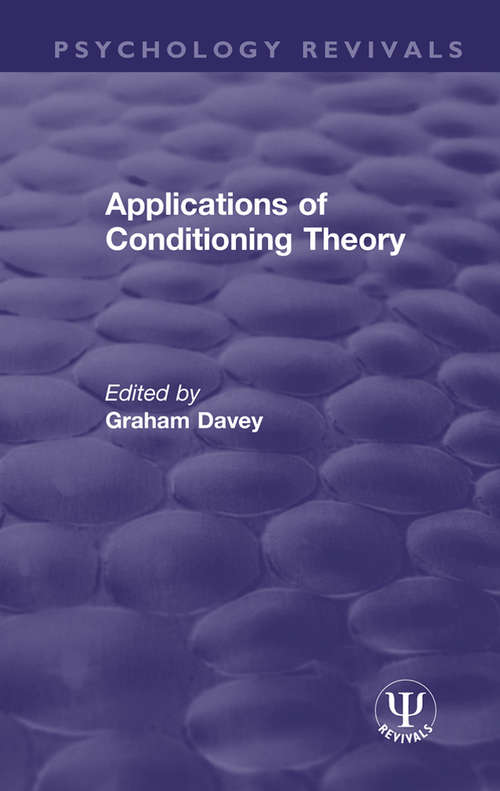Applications of Conditioning Theory (Psychology Revivals)
By:
Sign Up Now!
Already a Member? Log In
You must be logged into Bookshare to access this title.
Learn about membership options,
or view our freely available titles.
- Synopsis
- The area of applied psychology known as behaviour modification or behaviour therapy had progressed remarkably in the ten years, prior to publication. Illustrative of this progress is the variety of therapeutic and behaviour management techniques now available to the applied psychologist. This volume, originally published in 1981, describes some of the important characteristics of this development, and in particular, the relationship between behaviour change techniques and the principles of conditioning theory that generated them. This brief gives rise to three main themes. First, the book describes some of the reasons underlying the adoption of the conditioning paradigm and the epistemological advantages of the paradigm for behaviour modification. Second, a number of chapters discuss the current trends in specific areas of applied psychology where conditioning principles play an important heuristic role. These chapters deal with the uses made of conditioning theory in the areas of mental handicap, psychiatric therapy, work organizations, and the treatment of brain injury. Third, later chapters discuss some of the more recent theoretical developments in the field of behaviour modification/therapy, in particular the drift from strict behaviouristic applications of conditioning principles to more cognitive ones.
- Copyright:
- 1981
Book Details
- Book Quality:
- Publisher Quality
- Book Size:
- 242 Pages
- ISBN-13:
- 9781351273060
- Related ISBNs:
- 9781138574946, 9781351273084, 9781138574854
- Publisher:
- Taylor and Francis
- Date of Addition:
- 08/27/23
- Copyrighted By:
- Routledge
- Adult content:
- No
- Language:
- English
- Has Image Descriptions:
- No
- Categories:
- Nonfiction, Psychology
- Submitted By:
- Bookshare Staff
- Usage Restrictions:
- This is a copyrighted book.
- Edited by:
- Graham Davey
